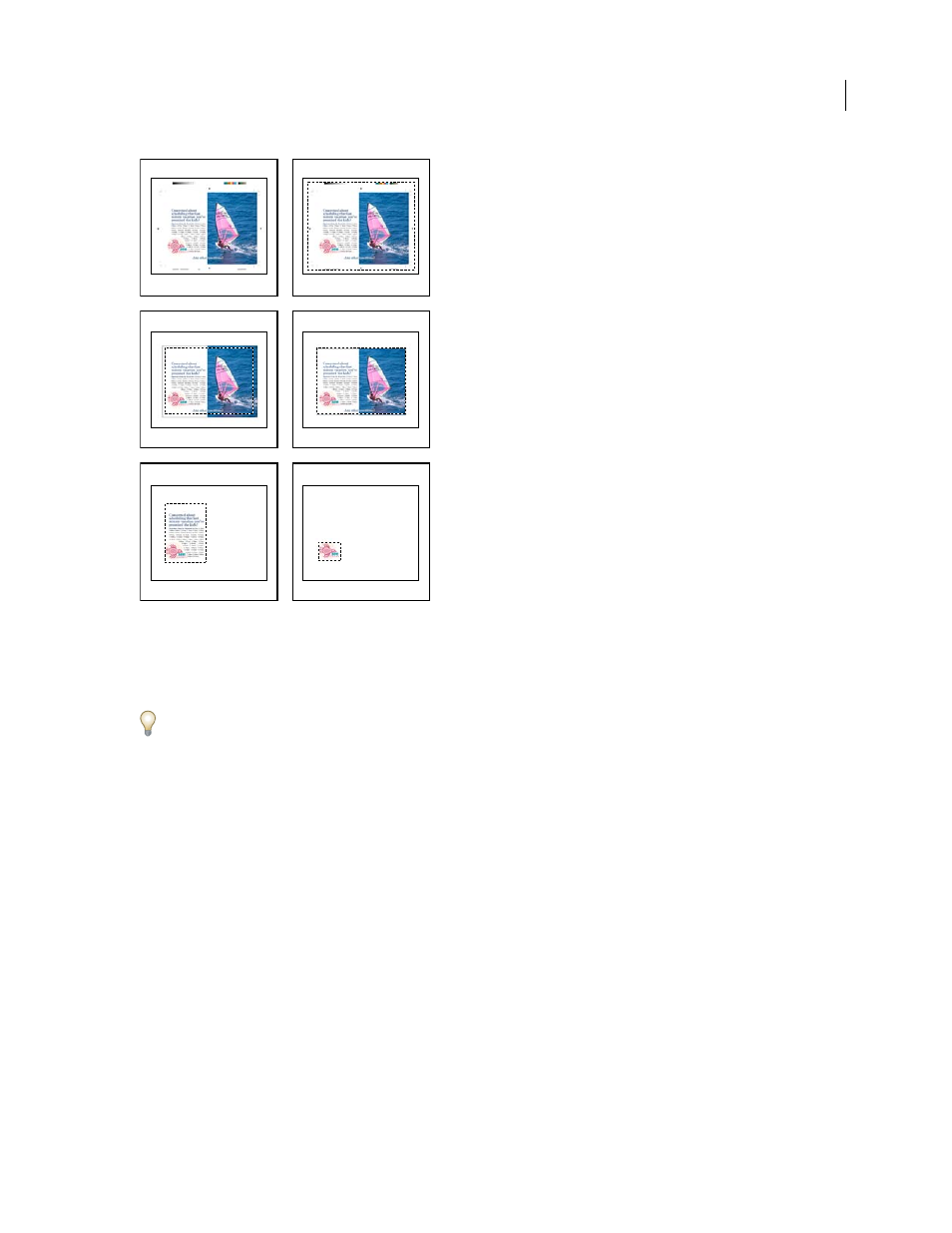Control layer visibility in imported images – Adobe InDesign CS3 User Manual
Page 350

INDESIGN CS3
User Guide
343
Options for cropping placed PDFs
A. Media B. Content C. Bleed D. Trim E. Crop F. Art
Transparent Background
Select this option to reveal text or graphics that fall beneath the PDF page in the InDesign
layout. Deselect this option to place the PDF page with an opaque white background.
If you make the background transparent in a frame containing a PDF graphic, you can make it opaque later by
adding a fill to the frame.
InDesign (.indd) import options
InDesign preserves the layout, graphics, and typography in a placed INDD file. However, the file is treated as an
object, and you can’t edit it, although you can control the visibility of layers and choose which pages of a multi-page
INDD file to import.
When you place an InDesign file and select Show Import Options in the Place dialog box, you’ll see a dialog box
containing the following options:
Show preview
Preview a page before you place it. You can type a page number or click the arrows to preview a page
in a multi-page document.
Pages
Specify the pages you want to place: the page displayed in the preview, all pages, or a range of pages.
Crop to
Specify how much of the page or pages to place, the page itself or the bleed or slug areas on the pasteboard.
Control layer visibility in imported images
When you import Photoshop PSD files, layered PDFs, and INDD files, you can control the visibility of top-level
layers. Adjusting layer visibility in InDesign lets you vary an illustration depending on context. For example, in a
multilanguage publication, you can create a single illustration that includes one text layer for each language.
A
B
C
D
E
F
